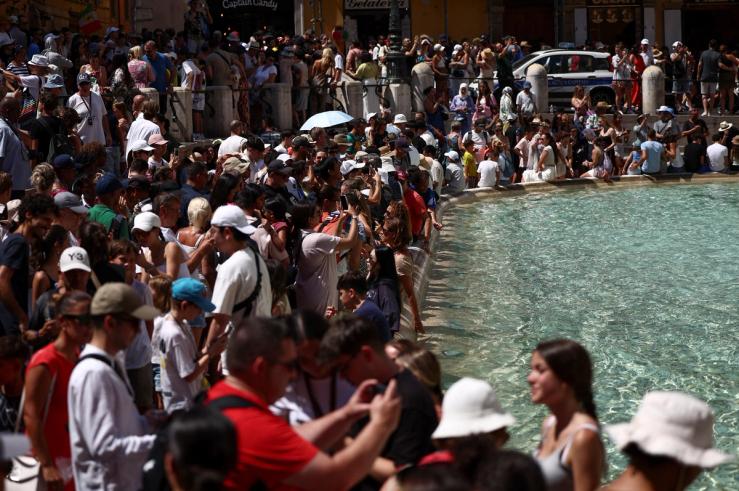The News
Italy is weighing a steep increase in tourist taxes to counter the impact of overtourism, the latest European country to take steps against unmanageable visitor numbers that have led to protests across the continent.
Under the proposed measure, the tax to spend the night in an Italian city, currently €1-€5 ($1-$5.50), could increase to up to €25 for the most expensive hotel rooms, the Financial Times reported — with the country’s Tourism Minister saying it would make tourists “more responsible.”
Europe has become the epicenter of a movement against mass tourism this summer, with protests erupting in several countries including Spain, the Netherlands, and Greece, as residents object to the negative impact excessive visitor numbers have on their quality of life.
SIGNALS
Residents protest rising costs and changing neighborhoods
Chief among residents’ complaints about an overflow in visitors is the rise in the cost of living and gentrification seen in highly popular tourist areas, which has pushed some residents out. In Barcelona, for example, rents have risen 68% in the past decade, CNN noted. Many feel tourism ruptures the social fabric of certain neighborhoods in touristy cities, where historic establishments are often forced out to make room for shops selling cheaper, lower-quality products aimed at visitors, Italian outlet Il Post added. Overtourism adds to the pressure on health services, waste management, and water supplies, Euronews reported, while the construction of hotels and new housing can bring environmental concerns.
In Italy, a fine line between preserving industry and protecting residents
In Italy, many residents are irked at the impact tourism has on their cities and support an increase in taxes for visitors, the Financial Times reported. But the government is also wary of alienating the tourism industry, which accounted for about 6% of the country’s GDP according to the most recent estimates, Italian outlet Pagella Politica noted. Some leaders in the tourism sector and politicians have already expressed frustration at the proposed measure, which they say may deter visitors and negatively impact the hospitality sector. Italy is also facing the pressure of increased public debt, which could reach 140% this year, the Financial Times added.
Past tourist taxes have produced mixed results
A number of popular tourist destinations in Europe have recently introduced or increased their tourist taxes, National Geographic reported, but the levies have produced mixed results. In Barcelona, two fees — one of which has increased from €0.75 ($0.80) per night in 2021 to €3.25 in 2024 — haven’t deterred tourists from visiting the city, but the city council expects to collect over $100 million from them in 2024, which officials say will help increase residents’ quality of life. In Amsterdam, a high tourist tax may just push visitors to spend the night outside the city and commute in for the day, one university professor told the magazine — which wouldn’t reduce the number of tourists, but would slash the revenue locals can make from accommodation.



